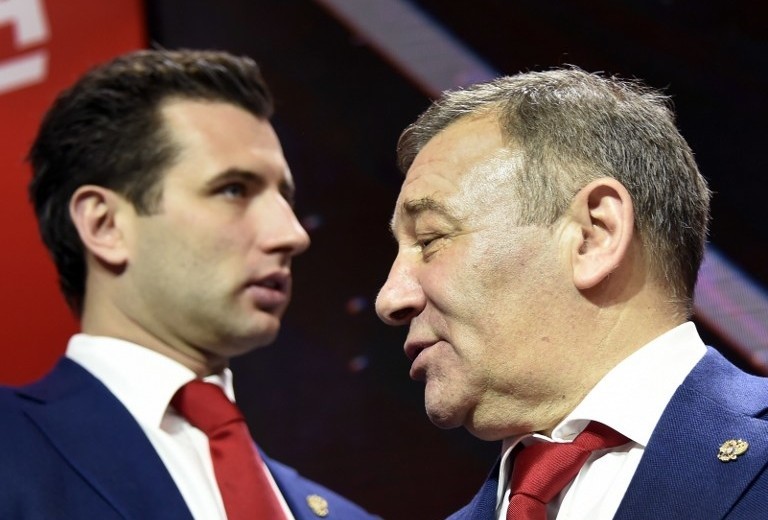In London, a long-time haven for the Moscow elite and their suspiciously-sourced wealth, the lives of Russian oligarchs could soon become substantially less comfortable.
A group of six Russian oligarchs with close ties to the Kremlin will face new sanctions, increased scrutiny, revoked visas, possible asset seizures and surveillance by the intelligence services as new official measures from the British government come into effect.
The new measures, according to a senior Whitehall security source, are a direct response to the latest acts of Russian aggression against the United Kingdom and its allies.
Oligarch crackdown
“The aim of the measures we intend to take is to limit their maneuverability and their ability to travel and operate freely in Britain, Europe and elsewhere,” a senior government security source told Britain’s Daily Telegraph newspaper on Dec. 8.
“We believe they are involved in doing the Kremlin’s bidding on a whole range of fronts, which includes using their financial muscle on behalf of the Russian state,” the source added.
Britain’s intelligence services, MI6 and MI5, drew up an initial list of six oligarchs to be targeted and submitted it to British Prime Minister Theresa May last week.
May has reportedly approved the measures and will now move to convince Britain’s European and North American allies to take similar, strong measures against Russian businessmen with ties to the Kremlin.
The oligarchs in question could soon have their ability to travel freely and run their global business empires severely impeded thanks to revoked visas and travel restrictions.
Security officials also want the Russian businessmen to face increased scrutiny and to see more robust inspections of their financial and property assets in the U.K. and across Europe.
The newly-sanctioned oligarchs include the multi-billionaire owner of Chelsea football club, Roman Abramovich, and the billionaire co-owner of Kyiv’s Ocean Plaza shopping mall, Arkady Rotenberg and his younger brother Boris.
Also included on the list is Oleg Deripaska, a friend of Russian dictator Vladimir Putin with ties to Paul Manafort, Alisher Usmanov, formerly of Russian state energy giant Gazprom, and Igor Sechin, former secretary to Putin and former deputy prime minister of Russia.
Sanctions and seizures
All of the oligarchs in question have strong ties to London in the shape of property, financial assets and business interests but they also maintain, according to British intelligence, close strategic ties to the Kremlin and personal friendships with Putin.
“These individuals have been identified as having an extremely close professional and financial relationship with President Putin,” the government security source reportedly said.
All six Russian businessmen are now likely, as part of the new sanctions package, to be audited under new investigative powers incorporated into British criminal finance law in January 2018.
New measures, designed to tackle corruption, organized crime and money laundering, empower the British courts to issue suspicious individuals with an unexplained wealth order, which compels the recipient to explain and reveal the sources of their wealth.
If a person is unable to satisfactorily explain the origin of their wealth, and show that it wasn’t obtained through crime, sanctioned activities or corruption, the National Crime Agency, or NCA – Britain’s version of the Federal Bureau of Investigation, or FBI – can appeal to the courts for asset seizures.
On Oct. 30, British police made their first arrest with their new unexplained wealth order powers.
Zamira Hajiyeva, the wife of Jahangir Hajiyev, the former chairman of the International Bank of Azerbaijan, was arrested on financial crimes charges in relation to spending 16.3 million pounds ($20 million) at the upmarket department store in central London, Harrods.
Russian ownership in Kyiv
Four of the six oligarchs in question are already under some level of Western sanctions in relation to illegal activity in the Russian-occupied Ukrainian territory of Crimea, alleged election interference, or ties to the Kremlin’s other illegal actions abroad.
The new sanctions from the British government and increased scrutiny of the intelligence services are expected to significantly reinforce those measures, especially if other allied countries follow suit.
Arkady Rotenberg – who owns a 35 million pound ($44 million) mansion in the Surrey countryside and an 8 million pound ($10 million) luxury apartment in central London – and his younger brother Boris, are most famous in Ukraine for their family’s interests in Crimea and business interests in the Ukrainian capital Kyiv.
The brothers co-own the Stroygazmontazh group, the largest construction company for gas and electrical power supply in Russia.
In January 2015, that company also signed a contract with the Russian government to build a $3.7 billion, 19-kilometer bridge connecting Russia’s Krasnodar region with Ukraine’s Russian-occupied Crimean peninsula — a project that was completed in May 2018 despite widespread international disapproval.
To date, no international insurance company has agreed to underwrite the insurance on the bridge, widely regarded as illegal, due to the risk of international sanctions.
The Ocean Plaza shopping mall in the Ukrainian capital Kyiv – one of the country’s most famous shopping centers, valued at about $300 million – also belongs to the Rotenberg brothers and family, through the proxy ownership of a company that’s majority-held by Arkady Rotenberg’s daughter, Lilia Rotenberg.
The shopping mall was recently closed temporarily when it became the focal point of protests against the Rotenberg family, as Russia used the Kerch Strait bridge to blockade Ukrainian vessels, and then attacked its navy ships and took 24 of its sailors prisoner.



